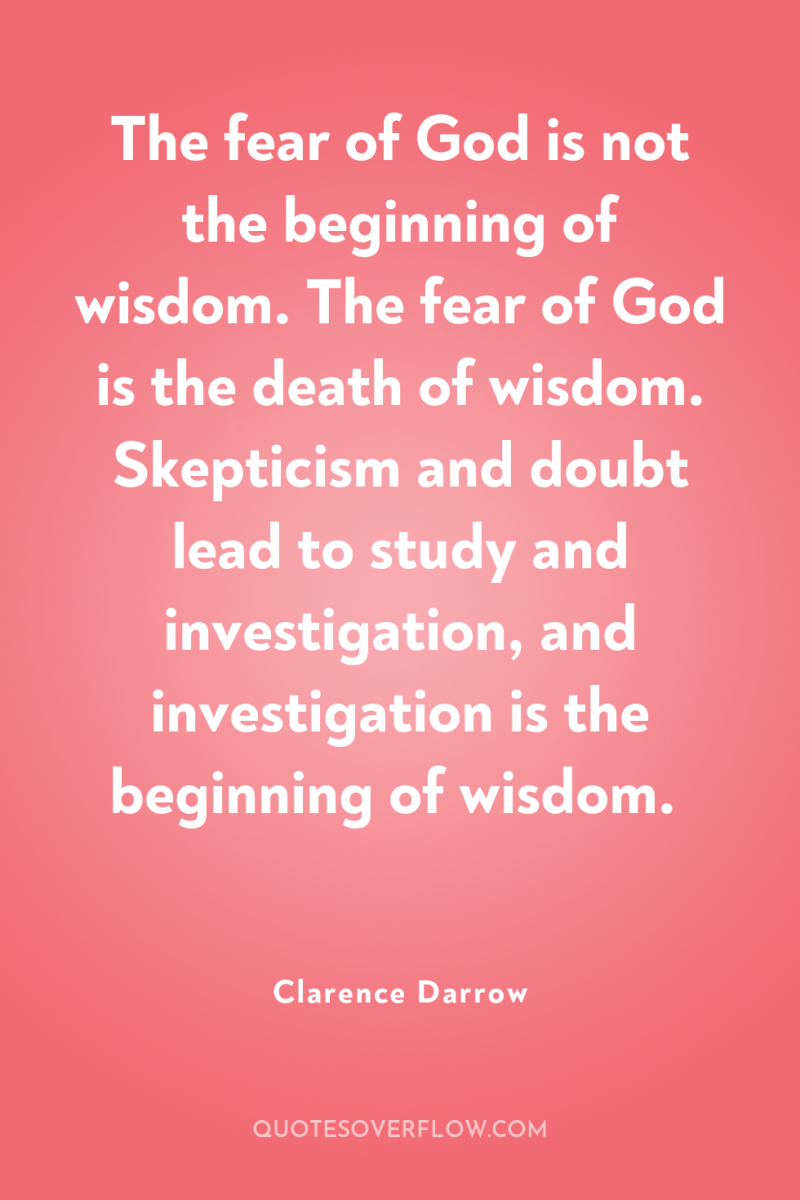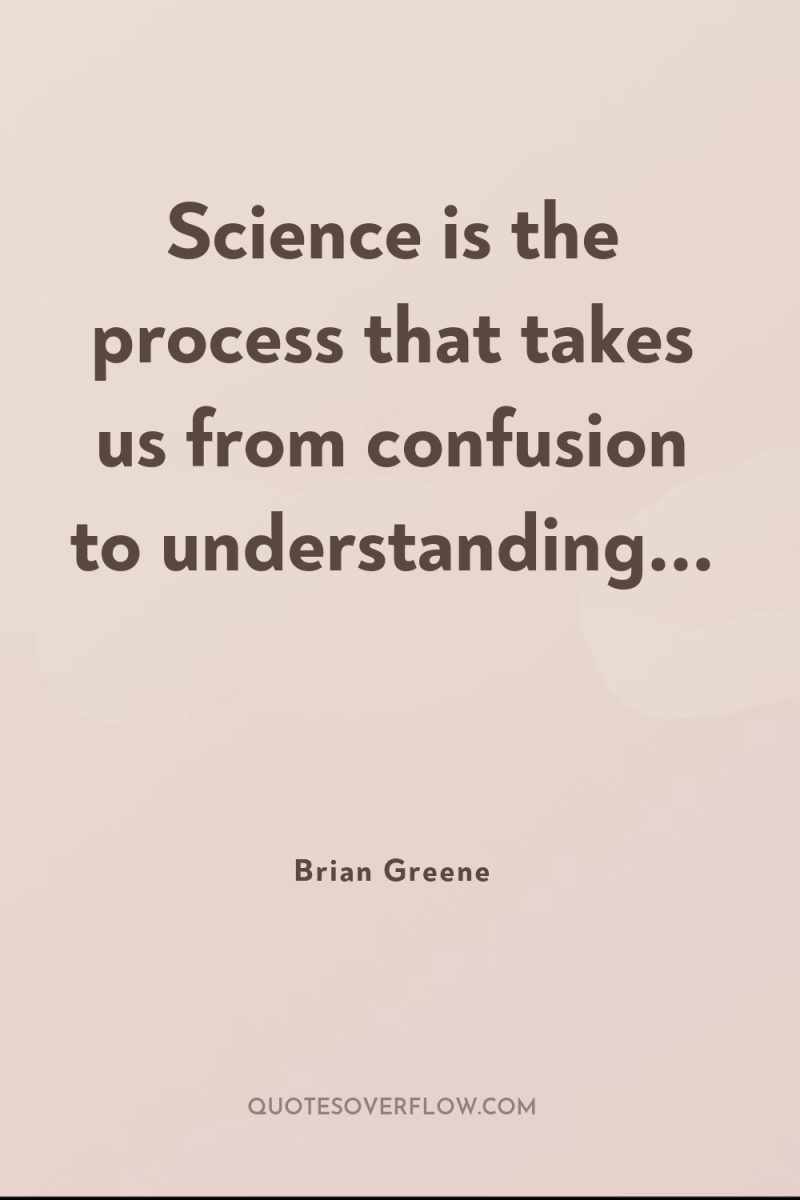
1
Investigation?" Isabelle laughed. "Now we're detectives? Maybe we should all have code names."" Good idea, " said Jace. "I shall be Baron Hotschaft Von Hugenstein.Cassandra Clare
2
Naive people tend to generalize people as–-good, bad, kind, or evil based on their actions. However, even the smartest person in the world is not the wisest or the most spiritual, in all matters. We are all flawed. Maybe, you didn’t know a few of these things about Einstein, but it puts the notion of perfection to rest. Perfection doesn’t exist in anyone. Nor, does a person’s mistakes make them less valuable to the world. 1. He divorced the mother of his children, which caused Mileva, his wife, to have a break down and be hospitalized.2. He was a ladies man and was known to have had several affairs; infidelity was listed as a reason for his divorce.3. He married his cousin.4. He had an estranged relationship with his son.5. He had his first child out of wedlock.6. He urged the FDR to build the Atom bomb, which killed thousands of people.7. He was Jewish, yet he made many arguments for the possibility of God. Yet, hypocritically he did not believe in the Jewish God or Christianity. He stated, “I believe in Spinoza’s God who reveals himself in the harmony of all that exists, not in a God who concerns himself with the fate and the doings of mankind. .Shannon L. Alder

3
The truth must be quite plain, if one could just clear away the litter.Agatha Christie

4
The fear of God is not the beginning of wisdom. The fear of God is the death of wisdom. Skepticism and doubt lead to study and investigation, and investigation is the beginning of wisdom.Clarence Darrow
5
Thus, by science I mean, first of all, a worldview giving primacy to reason and observation and a methodology aimed at acquiring accurate knowledge of the natural and social world. This methodology is characterized, above all else, by the critical spirit: namely, the commitment to the incessant testing of assertions through observations and/or experiments – the more stringent the tests, the better – and to revising or discarding those theories that fail the test. One corollary of the critical spirit is fallibilism: namely, the understanding that all our empirical knowledge is tentative, incomplete and open to revision in the light of new evidence or cogent new arguments (though, of course, the most well-established aspects of scientific knowledge are unlikely to be discarded entirely).. I stress that my use of the term 'science' is not limited to the natural sciences, but includes investigations aimed at acquiring accurate knowledge of factual matters relating to any aspect of the world by using rational empirical methods analogous to those employed in the natural sciences. (Please note the limitation to questions of fact. I intentionally exclude from my purview questions of ethics, aesthetics, ultimate purpose, and so forth.) Thus, 'science' (as I use the term) is routinely practiced not only by physicists, chemists and biologists, but also by historians, detectives, plumbers and indeed all human beings in (some aspects of) our daily lives. (Of course, the fact that we all practice science from time to time does not mean that we all practice it equally well, or that we practice it equally well in all areas of our lives.) .Alan Sokal

6
In the grace of the Truth, re-examine all that you have been told.Lailah Gifty Akita

7
Science is the process that takes us from confusion to understanding...Brian Greene
8
No, but if I were an illegal, experimental replicant hiding the truth of an international conspiracy I would try and put myself out of the way of those investigating it, wouldn't you? I don't think hiding under a bed will be very successful. But, if you've any better idea of what the deadly robot assassin is up to, please feel free to act upon it.Guy Haley
9
If the Pentateuch be true, religious persecution is a duty. The dungeons of the Inquisition were temples, and the clank of every chain upon the limbs of heresy was music in the ear of God. If the Pentateuch was inspired, every heretic should be destroyed; and every man who advocates a fact inconsistent with the sacred book, should be consumed by sword and flame. In the Old Testament no one is told to reason with a heretic, and not one word is said about relying upon argument, upon education, nor upon intellectual development–nothing except simple brute force. Is there to-day a christian who will say that four thousand years ago, it was the duty of a husband to kill his wife if she differed with him upon the subject of religion? Is there one who will now say that, under such circumstances, the wife ought to have been killed? Why should God be so jealous of the wooden idols of the heathen? Could he not compete with Baal? Was he envious of the success of the Egyptian magicians? Was it not possible for him to make such a convincing display of his power as to silence forever the voice of unbelief? Did this God have to resort to force to make converts? Was he so ignorant of the structure of the human mind as to believe all honest doubt a crime? If he wished to do away with the idolatry of the Canaanites, why did he not appear to them? Why did he not give them the tables of the law? Why did he only make known his will to a few wandering savages in the desert of Sinai? Will some theologian have the kindness to answer these questions? Will some minister, who now believes in religious liberty, and eloquently denounces the intolerance of Catholicism, explain these things; will he tell us why he worships an intolerant God? Is a god who will burn a soul forever in another world, better than a christian who burns the body for a few hours in this? Is there no intellectual liberty in heaven? Do the angels all discuss questions on the same side? Are all the investigators in perdition? Will the penitent thief, winged and crowned, laugh at the honest folks in hell? Will the agony of the damned increase or decrease the happiness of God? Will there be, in the universe, an eternal auto da fe? .Robert G. Ingersoll
10
You have a freckle, ” he murmured. “Right” — he leaned down and dropped a light kiss near the inside of her elbow — “here.” “You’ve seen it before, ” she said softly. It wasn’t in an immodest spot; she had plenty of frocks with short sleeves. He chuckled. “But I’ve never given it it’s proper due.” “Really.” “Mmm-hmm.” He lifted her arm, twisting it just a bit so that he could pretend to be studying her freckle. “It is clearly the most delightful beauty mark in all of England.” A marvelous sense of warmth and contentment melted through her. Even as her body burned for his, she could not stop herself from encouraging his teasing conversation. “Only England?” “Well, I haven’t traveled very extensively abroad…” “Oh, really?” “And you know…” His voice dropped to a husky growl. “There may be other freckles right here in this room. You could have one here.” He dipped a finger under the bodice of her nightgown, then moved his other hand to her hip. “Or here.” “I might, ” she agreed. “The back of your knee, ” he said, the words hot against her ear. “You could have one there.” She nodded. She wasn’t sure she was still capable of speech. “One of your toes, ” he suggested. “Or your back.” “You should probably check, ” she managed to get out. He took a deep, shuddering breath.Julia Quinn
11
Really it was like trying to solve a crime in the Stock Exchange, the way the mildest mention of sex interrupted business.Peter Dickinson
12
This vacillation between assertion and denial in discussions about organised abuse can be understood as functional, in that it serves to contain the traumatic kernel at the heart of allegations of organised abuse. In his influential ‘just world’ theory, Lerner (1980) argued that emotional wellbeing is predicated on the assumption that the world is an orderly, predictable and just place in which people get what they deserve. Whilst such assumptions are objectively false, Lerner argued that individuals have considerable investment in maintaining them since they are conducive to feelings of self–efficacy and trust in others. When they encounter evidence contradicting the view that the world is just, individuals are motivated to defend this belief either by helping the victim (and thus restoring a sense of justice) or by persuading themselves that no injustice has occurred. Lerner (1980) focused on the ways in which the ‘just world’ fallacy motivates victim-blaming, but there are other defences available to bystanders who seek to dispel troubling knowledge. Organised abuse highlights the severity of sexual violence in the lives of some children and the desire of some adults to inflict considerable, and sometimes irreversible, harm upon the powerless. Such knowledge is so toxic to common presumptions about the orderly nature of society, and the generally benevolent motivations of others, that it seems as though a defensive scaffold of disbelief, minimisation and scorn has been erected to inhibit a full understanding of organised abuse. Despite these efforts, there has been a recent resurgence of interest in organised abuse and particularly ritualistic abuse (eg Sachs and Galton 2008, Epstein et al. 2011, Miller 2012).Michael Salter
13
Some readers may find it a curious or even unscientific endeavour to craft a criminological model of organised abuse based on the testimony of survivors. One of the standard objections to qualitative research is that participants may lie or fantasise in interview, it has been suggested that adults who report severe child sexual abuse are particularly prone to such confabulation. Whilst all forms of research, whether qualitative or quantitative, may be impacted upon by memory error or false reporting. there is no evidence that qualitative research is particularly vulnerable to this, nor is there any evidence that a fantasy– or lie–prone individual would be particularly likely to volunteer for research into child sexual abuse. Research has consistently found that child abuse histories, including severe and sadistic abuse, are accurate and can be corroborated (Ross 2009, Otnow et al. 1997, Chu et al. 1999). Survivors of child abuse may struggle with amnesia and other forms of memory disturbance but the notion that they are particularly prone to suggestion and confabulation has yet to find a scientific basis. It is interesting to note that questions about the veracity of eyewitness evidence appear to be asked far more frequently in relation to sexual abuse and rape than in relation to other crimes. The research on which this book is based has been conducted with an ethical commitment to taking the lives and voices of survivors of organised abuse seriously. .Michael Salter
14
Today, acknowledgement of the prevalence and harms of child sexual abuse is counterbalanced with cautionary tales about children and women who, under pressure from social workers and therapists, produce false allegations of ‘paedophile rings’, ‘cult abuse’ and ‘ritual abuse’. Child protection investigations or legal cases involving allegations of organised child sexual abuse are regularly invoked to illustrate the dangers of ‘false memories’, ‘moral panic’ and ‘community hysteria’. These cautionary tales effectively delimit the bounds of acceptable knowledge in relation to sexual abuse. They are circulated by those who locate themselves firmly within those bounds, characterising those beyond as ideologues and conspiracy theorists. However firmly these boundaries have been drawn, they have been persistently transgressed by substantiated disclosures of organised abuse that have led to child protection interventions and prosecutions. Throughout the 1990s, in a sustained effort to redraw these boundaries, investigations and prosecutions for organised abuse were widely labelled ‘miscarriages of justice’ and workers and therapists confronted with incidents of organised abuse were accused of fabricating or exaggerating the available evidence. These accusations have faded over time as evidence of organised abuse has accumulated, while investigatory procedures have become more standardised and less vulnerable to discrediting attacks. However, as the opening quotes to this introduction illustrate, the contemporary situation in relation to organised abuse is one of considerable ambiguity in which journalists and academics claim that organised abuse is a discredited ‘moral panic’ even as cases are being investigated and prosecuted.Michael Salter
15
Allegations of multi-perpetrator and multi-victim sexual abuse emerged to public awareness in the early 1980s contemporaneously with the denials of the accused and their supporters. Multi-perpetrator sexual offences are typically more sadistic than solo offences and organised sexual abuse is no exception. Adults and children with histories of organised abuse have described lives marked by torturous and sometimes ritualistic sexual abuse arranged by family members and other care-givers and authority figures. It is widely acknowledged, at least in theory, that sexual abuse can take severe forms, but when disclosures of such abuse occur, they are routinely subject to contestation and challenge. People accused of organised, sadistic or ritualistic abuse have protested that their accusers are liars and fantasists, or else innocents led astray by overly zealous investigators. This was an argument that many journalists and academics have found more convincing than the testimony of alleged victims.Michael Salter
16
Naturally, the plague of humanity named confidence (or pride to some), which symptoms often render each person to fiercely believe himself to be above average, let them to believe that it was others who were affected by this case but not them. Everyone thought they had the quintessential ability to detach themselves from the cases they were working, even if the victim looked and behaved exactly like their son, daughter, niece or nephew.Bruce Crown
17
Jackson watched in amazement that she had convinced the driver to handle the vehicle in such a way. Tourists began taking pictures of Imogene, standing tall in the seat while the driver guided the horse with the reins. She kept her eye trained on Catfish, describing his every step as if the driver couldn’t see the runner for himself … Catfish stopped at the “T” in the road up ahead. He was heaving air, and Imogene said, “We’ve worn him out, son. Keep on him. He’s ours for the catchin’.Hunter Murphy
18
This investigation felt difficult, like driving in fog.
Sara Sheridan
19
The secret to discovery is to never believe existing facts.Bryant McGill
20
But at the same time, there must never be the least hesitation in giving up a position the moment it is shown to be untenable. It is not going too far to say that the greatness of a scientific investigator does not rest on the fact of his having never made a mistake, but rather on his readiness to admit that he has done so, whenever the contrary evidence is cogent enough.William Bayliss
21
Indeed, to this day, I think if you blame everything on the government, you're not just wrong, you're being reckless. It's as silly as blaming everything on the Freemasons, or the Illuminati, or insert-bad-guy-here. But I do believe that someone must ask the hard questions, especially of our elected officials as well as powerful men who become members of so-called secret societies. Remember: Governments don't lie. People lie. And if you want the real story, you need to find out more about those people.Brad Meltzer
22
One of the most striking results of modern investigation has been the way in which several different and quite independent lines of evidence indicate that a very great event occurred about two thousand million years ago. The radio-active evidence for the age of meteorites; and the estimated time for the tidal evolution of the Moon's orbit (though this is much rougher), all agree in their testimony, and, what is far more important, the red-shift in the nebulae indicates that this date is fundamental, not merely in the history of our system, but in that of the material universe as a whole.Henry Norris Russell
23
You don't have to believe in coincidences because they happen every day. The trick is to be able to discern when something is more than coincidence.Glenn Jones
24
How strange, " continued the king, with some asperity; "the police think that they have disposed of the whole matter when they say, 'A murder has been committed, ' and especially so when they can add, 'And we are on the track of the guilty persons.Alexandre Dumas
25
This monograph by Special Agent Ken Lanning (1992) is merely a guide for those who may investigate this phenomenon, as the title indicates, and not a study. The author is a well known skeptic regarding cult and ritual abuse allegations and has consulted on a number of cases but to our knowledge has not personally investigated the majority of these cases, some of which have produced convictions. p179[refers to Lanning, K. V. (1992)Investigator's guide to allegations of "ritual" child abuse. Quantico, VA: National Center for the Analysis of Violent Crime.] .Pamela Sue Perskin
26
The memories seem to come in layers. For example, the first memory might be of incest; then they remember robes and candles; next they realize that their father or mother or both were present when they were being abused. Another layer will be the memory of seeing other people hurt and even killed. Then they remember having seen babies killed. Another layer is realizing that they participated in the sacrifices. One of the most painful memories may be that they even sacrificed their own baby. With each layer of memory comes another set of problems with which they must deal.– Glenn L. Pace; "Ritualistic Child Abuse, " memo .Glenn L. Pace
27
The carriage could only clop along at about ten miles per hour, which only accentuated Imogene’s excitement. She urged it onward: "Fly, horse, fly!Hunter Murphy
28
Frank Olson had joined the Special Operations Division of the Army's Biological Laboratory at Fort Detrick at its inception in 1950. He was issued a Q clearance, the civilian equivalent of the military's top secret clearance, and worked with the CIA on MK-ULTRA.As part of that work, he traveled in 1953 to Britain, France and West Germany. At the secret British military research center at Porton Down, the sons say, Olson witnessed "extreme interrogations" in which "the CIA committed murder" using biological agents Olson had developed. They say a psychiatrist there, William Sargent, grew concerned that Olson "had serious misgivings related to those murders and might therefore pose a security risk, " and so recommended to his superiors that Olson no longer be granted access to classified research facilities in Britain.source: Six decades later, sons seek answers on death of Detrick scientist The Baltimore Sun, 8 December 2012.Matthew Hay Brown
29
It has often been said that the more unusual the murder the easier it is to solve, but this is a theory I don't believe. Nothing is easy, nothing is simple, and you should think of your investigations as a complicated experiment: look at what remains constant and look at what changes, ask the right questions and don't be afraid of wrong answers, and above all rely on observation and rely on experience.Peter Ackroyd
30
Science is not, as so many seem to think, something apart, which has to do with telescopes, retorts, and test-tubes, and especially with nasty smells, but it is a way of searching out by observation, trial and classification; whether the phenomena investigated be the outcome of human activities, or of the more direct workings of nature's laws. Its methods admit of nothing untidy or slip-shod; its keynote is accuracy and its goal is truth.Archibald E. Garrod
31
It is certain that the labors of these early workers in the field of natural knowledge were brought to a standstill by the decay and disruption of the Roman Empire, the consequent disorganisation of society, and the diversion of men's thoughts from sublunary matters to the problems of the supernatural world suggested by Christian dogma in the Middle Ages. And, notwithstanding sporadic attempts to recall men to the investigation of nature, here and there, it was not until the fifteenth and sixteenth centuries that physical science made a new start, founding itself, at first, altogether upon that which had been done by the Greeks. Indeed, it must be admitted that the men of the Renaissance, though standing on the shoulders of the old philosophers, were a long time before they saw as much as their forerunners had done.Thomas Henry Huxley
32
If you're good at this job, and I am, then every step in a murder case moves you in one direction: towards order. We get thrown shards of senseless wreckage, and we piece them together until we can lift the picture out of the darkness and hold it up to the white light of day, solid, complete, clear. Under all the paperwork and the politics, this is the job; this is its cool shining heart that I love with every fiber of mine. This case was different. It was running backwards, dragging us with it on some ferocious ebb tide. Every step washed us deeper in black chaos, wrapped us tighter in tendrils of crazy and pulled us downwards.Tana French
33
Do experimental work but keep in mind that other investigators in the same field will consider your discoveries as less than one fourth as important as they seem to you.Charles Manning Child
34
The principal result of my investigation is that a uniform developmental principle controls the individual elementary units of all organisms, analogous to the finding that crystals are formed by the same laws in spite of the diversity of their forms.Theodor Schwann
35
The rules of scientific investigation always require us, when we enter the domains of conjecture, to adopt that hypothesis by which the greatest number of known facts and phenomena may be reconciled.Matthew Fontaine Maury
36
A wise woman protects her kids. A wiser woman hangs out with police officers, retired FBI agents and private investigators.Shannon L. Alder
37
We have no general conceptual thrust for the band, other than trying to make music that keeps our interest. When things are novel, they are probably things we have discovered by accident or investigation rather than by design.Steve Albini
38
It seems to me that at this time we need education in the obvious more than investigation of the obscure.Oliver Wendell Holmes